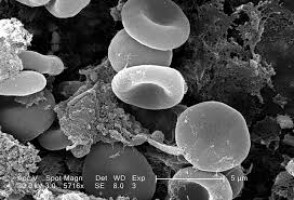
Mutations in SF3B1 and U2AF1 can drive overexpression of activated IRAK4 — which regulates inflammation and promotes cancer cell growth and survival — and are associated with a poor prognosis for patients with high-risk myelodysplastic syndrome (HR-MDS) and acute myeloid leukaemia (AML).
Emavusertib is a targeted therapy that inhibits IRAK4 and FLT3, which also is frequently mutated in AML. Guillermo Garcia-Manero, M.D., led a Phase I/IIa study to investigate the safety and efficacy of emavusertib alone (Phase I) or in combination with either azacitidine or venetoclax (Phase IIa).
In 49 patients treated on the Phase I portion, emavusertib had manageable side effects and no Grade 4-5 treatment-related adverse events. In five AML and seven HR-MDS patients with SF3B1 or U2AF1 mutations, complete response (CR) rates were 40% and 57%, respectively.
Of three FLT3-mutant AML patients, one had a CR and two became negative for mutant FLT3. There were limited responses in patients without these mutations.
Early data for this ongoing trial suggest emavusertib is well-tolerated with encouraging activity, particularly for patients with select mutations.
We are an independent charity and are not backed by a large company or society. We raise every penny ourselves to improve the standards of cancer care through education. You can help us continue our work to address inequalities in cancer care by making a donation.
Any donation, however small, contributes directly towards the costs of creating and sharing free oncology education.
Together we can get better outcomes for patients by tackling global inequalities in access to the results of cancer research.
Thank you for your support.